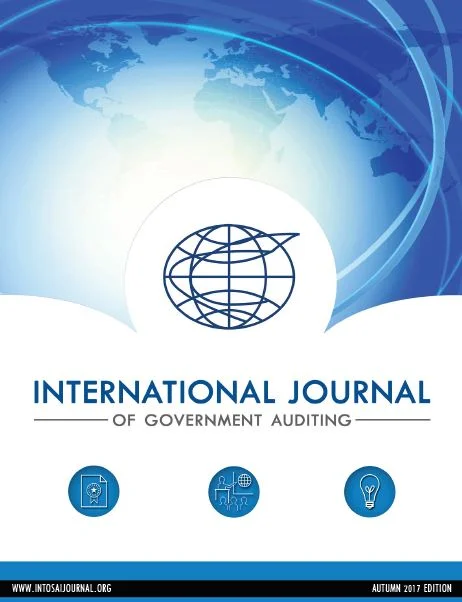Pubiished on Matangi Tonga (http://matangitonga.to)
When confronted with revelations in the 2015-16 Annual Report of the Auditor General of unpaid debts, unrecorded assets, improper record of revenues and even separate bank accounts of government ministries, the Tongan Parliament was thrown into turmoil when it resumed its 2017-18 session on 1 August.
The Auditor General's report was among four other annual reports of government ministries that were tabled into parliament on 1 August.
According to experienced members of parliament this Auditor’s report was the most transparent and revealing report that had ever been presented to parliament.
The former Minister of Finance, ‘Aisake Eke and the Tongatapu No. 5 People’s Representative praised the Auditor General for his report, which pointed out the wrong doings in 13 government ministries, including the Ministries of Justice, Police, Prisons, Education, Health, Agriculture, Infrastructure, Public Enterprises, Labour and Commerce, Marine and Ports. The main problem, he said, was that they did not follow the due process that had been set out by the Ministry of Finance. This led to government ministries having:
- accumulated unpaid debts;
- no records of their assets;
- no records of revenue collected;
- advance payment of salaries of board directors;
- over-payment of per diems;
- delay in the depositing of revenue in the bank;
- not keeping birth and death certificates in order.
He said that most unusual also was the fact that the Ministry of Justice has its own Bank Account.
The former Minister of Finance reminded the House that legally, government ministries cannot establish an account without the approval of the Minister of Finance.
With regards to Public Enterprises he queried why the Tonga Development Bank and Tonga Power have independent auditors, and are not audited by the Auditor General, and why the salaries of the directors of the Water Board are paid in advance.
He suggested for the annual reports of Government Enterprises to be submitted to the House as had been the practice in the past.
PM's response
A shocking surprise, was how Prime Minister Hon ‘Akilisi Pohiva described the report which showed the very poor service that is offered by his government ministries, and how they are mismanaging government properties and finance.
He called on Cabinet Ministers to return to their ministries and call a meeting with their CEOs to address the problems that were pointed out in the report.
Lord Nuku pointed out to the PM that wrongdoing had been committed and a drastic measure should be taken.
The PM however insisted that what he was proposing was for the Ministers and their CEOs to put an end to all these wrong and illegal activities.
Lord Nuku repeated his point that wrongdoings had taken place, and the PM wanted his ministers to go back and put them right.
Lord Tu’ilakepa suggested that since the Auditor General had come under the Speaker and the Legislative Assembly, they should proceed and take legal action against the wrongdoings within government. He reminded the House that in the past, a Cabinet Minister lost his ministerial because he deposited government money into his own personal account.
Lord Tu’ilakepa also queried why the report did not report the case concerning a former Cabinet Minister who was penalised by the Prime Minister for wrongdoing, and was supposed to work without pay for five months. He wondered if the Prime Minister had actually punished the Cabinet Minister as he told the House.
The PM corrected the member that the Minister that he was referring to did not work without pay. He said that the suggestion was only a motion, but it was rejected by the House.
“That is an out-right lie,” Lord Tu’ilakepa said, and reminded the house that the PM said he would punish the minister, and he would work without pay.
The Prime Minister insisted that the motion for him to punish the Cabinet Minister was rejected by the House.
Lord Tu’ilakepa insisted that the motion was passed by the House and it was broadcasted on the radio.
The Minister of Police, Hon. Mateni Tapueluelu reminded the Chairman that they were debating over the 2015-16 Annual Report of the Auditor General, and there were a lot of issues for them to get into, but instead they were dealing with an issue that was not in the report.
Lord Tu’ilakepa reminded the Minister that the case he was referring to took place in 2015.
The House on the following day 2 August voted 17-0 for the Annual Report of the Auditor General to be forwarded to the Standing Committee on Finance and Public Accounts of the House to work on then report back to Parliament.
Wild accusations
However, before the House voted on the Annual Report, there were a few wild exchanges between Lord Tu’ilakepa and, Light of Day Taka and the PM.
It started off because the PM expressed his concern over the misuse of government vehicles.
Lord Tu’ilakepa said that he had spotted the vehicle of the Chairman of the Whole House Committee, Light of Day Taka, at night at a kava club in their area.
Light of Day said he was there on a church mission to see who was drinking kava.
The PM, however, shifted the topic to remind the House of a cocaine smuggling case with rumours that Lord Tu’ilakepa knew something about. The case was terminated.
Lord Tu’ilakepa responded to the PM, by telling him that he should resign - health wise he is not well and he should go home. “It is not right for you to continue as a Prime Minister!”
Author: Pesi Fonua




















